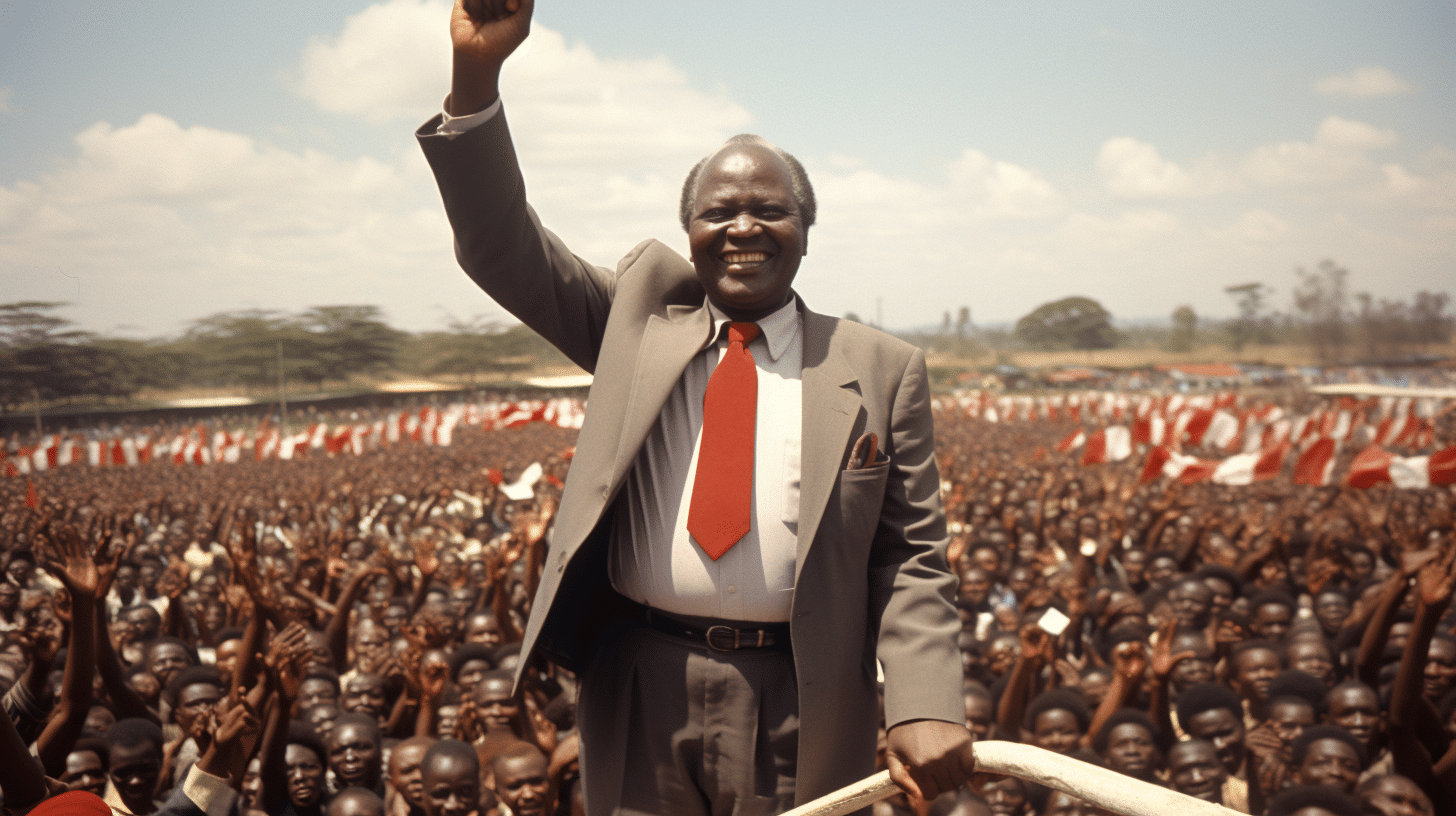The immediate former President of the Republic of Kenya, Emilio Mwai Kibaki took over office from Daniel Torotich Arap Moi, ending his twenty four year rule in 2002. Soon after, Kenya was rated the most optimistic nation under the leadership of Kibaki. His leadership marked a new beginning to the Kenyan society and the joy upon his inauguration at Nyayo Stadium, Nairobi is indescribable. Sworn in as Commander in Chief after surviving a terrible accident, the 10 year presidency of Mwai Kibaki has set the bar high for the current president, Uhuru Kenyatta. The following are fields of his merit.
NATIONAL INTERGRATION
Kibaki took over the leadership of a divided, corrupt, ethnic and stagnated nation. He since then worked towards national intergration in many ways. He was voted in by a large majority of Kenyans, giving him the outlook of the entire nation, not a single ethnic group. He was supported by politicians from all over Kenya, just to mention a few Raila Odinga, The late Hon George Saitoti, Michael Kijana Wamalwa, Musalia Mudavadi. He appointed ministers to the cabinet in a more transparent way than his predecessors. Top government positions and constitutional offices and parastatals were occupied by incompetent people appointed in a bias manner and he was sensitive enough to change this.
GAPPING RICH AND POOR
Kenya was a very corrupt nation when Kibaki came to power. Corruption was the order of the day. Getting favours like jobs, winning cases was as simple as bribery or having connections with the appropriate people. The rich therefore kept getting rich and the poor remained abysmally poor. Kibaki formed the Kenya Anti Corruption Commission that has played a big role in suppressing corruption. His leadership pumped fresh air of accountability in an earlier stuffy and corrupt society.
EDUCATION
This is one of the fields in which Mwai Kibaki will forever remain a darling to many in Kenya. His government provided free primary education to all Kenyan children, highly boosting the literacy levels of the Kenyan public. The citizens responded to this like a flood- massive enrolment in all public primary schools. This is what caused the enrolment of Kimani Maruge, an 84 years old Kenyan citizen to enroll for primary education, making him the holder of the Guinness World Book of Records for the oldest primary school student. In his second 5 year term, Kibaki made secondary school education in all public schools free too, releasing the burden of school fees to many parents.
INFRASTRUCTURE
The presidency of Kibaki was very developmental. Many schools, hospitals boreholes and many other developmental structures were put up. In the second term of his presidency, he saw the expansion of Kisumu International Airport and the trademark piece is the Thika Super Highway, which has greatly eased transport especially in Nairobi County. Kibaki also set ground for the construction of Konza Tecno City in Machakos County.
ECONOMIC GROWTH
As simple as this might sound, Kenya has experienced tremendous growth during the presidency of Mwai Kibaki. Kenya developed during this period more than during the 24 year presidency of Moi and 15 year presidency of the first president and founding father, Mzee Jomo Kenyatta, combined. This is because Kibaki was a bright student from Mang’u High School and a renowned economist. This has made Kenya the strongest East African Nation in terms of economic development.



0 comments